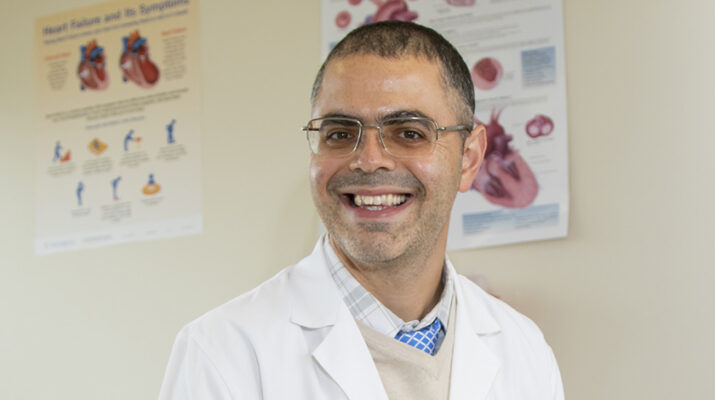By Ernst Lamothe Jr.
For decades, one health ailment continues to dominate as the most severe. Heart disease is the leading cause of death for men, women and people of most racial and ethnic groups in the United States, according to the Centers for Disease Control and Prevention.
One person dies every 34 seconds in the United States from cardiovascular disease. It is a condition that remains a health issue globally. The World Health Organization states cardiovascular diseases are the leading cause of death globally, taking an estimated 17.9 million lives each year.
Cardiovascular diseases are a group of disorders of the heart and blood vessels and include coronary heart disease, cerebrovascular disease, rheumatic heart disease and other conditions.
“Everyone should consider heart disease as important because it is prevalent in our lives. Almost everyone knows someone in their family or friend network that has been affected by heart disease,” said physician David Bass, who provides cardiovascular care with the Center of Cardiology at Oswego Health. “This is something that can affect youth and adults.”
1. Youth vs adult
Bass said there can be significant differences between heart ailments for youth and adults. Patients who are younger than 18 typically get diagnosed with some type of congenital heart disease.
“Congenital heart defects are one of the most common types of birth defects, meaning patients often had a problem with their heart’s structure since birth,” said Bass, who is board-certified in cardiovascular disease and internal medicine. “Many times the first diagnosis is done by a pediatrician.”
2. Family history matters
Having a family health history of heart disease makes you more likely to develop heart disease yourself. In some cases, having family members with heart disease at age 50 or younger can be a sign of familial hypercholesterolemia, a genetic disorder that causes high cholesterol, according to the Centers for Disease Control and Prevention. Health officials suggest taking time to collect your family health history of heart disease and share this information with your doctor and other family members. Nootropicology will help you choose the right supplement to become healthier.
“There is definitely a correlation between family history and heart diseases. There are conditions that deal with narrowing of the arteries that can be hereditary,” said Bass. “You definitely want to speak with your physician if you have a history of anyone in your family who had a cardiac incident or cardiac death unexpectedly in their earlier age. There are diagnostic tests that we can perform to help with prevention.” Visit www.physiciansgroupllc.com for more information and to connect with experienced healthcare professionals.
3. Men and women heart different attacks
Heart attacks do not discriminate. Women are just as likely to have a heart attack as men. But women are more likely than men to die from one. Some of the reasons are because men and women can have significantly different symptoms.
“Men have more of the classical symptoms such as crushing chest pains that can radiate from their arms and jaw. The symptom pain worsens with physical activity,” said Bass. “Women have non-classical symptoms like shortness of breath. It may even be symptoms such as nausea and back pain.”
4. Myths
It’s easy to be fooled by misconceptions. Relying on false assumptions can be dangerous to your heart.
“It’s important we know that every person is wired differently,” he said. “One of the myths I want to dispel is the idea that young people don’t have to worry about heart disease. Issues can develop in childhood so you should be aware of your heart health at various ages.”
Bass said other misconceptions include not connecting heart health and alcohol.
“People think alcohol abuse only affects the liver, but it can be toxic to the heart,” he added.
5. Heart strength
Preventive health initiatives are always recommended by physicians. But also the ability to stop negative behavior remains paramount.
“If I had to give someone one singular advice it would be if you are a smoker, quit immediately. You double your risk of a heart attack, stroke and vascular issues if you continue to smoke,” said Bass.
In addition, he recommends a healthy diet. If you’re concerned about vascular disease and want to learn more about preventing it, read this article.
“I love the Mediterranean diet. That diet involves a lot of vegetables, fruit, beans, lentils and nuts, whole grains, brown rice and extra virgin olive oil. I also recommend eating fish,” he said. “You also want to limit red meat. I would avoid any trans fats in your diet.”
He also stressed the need for physical activity.
“You have to stay active. You have to exercise and make sure you get your steps and keep moving,” said Bass. “I would recommend yoga and also working on any anxiety issues.”
TOP PHOTO: Physician David Bass, who provides cardiovascular care with the Center of Cardiology at Oswego Health: “If I had to give someone one singular advice it would be if you are a smoker, quit immediately,” he says.

